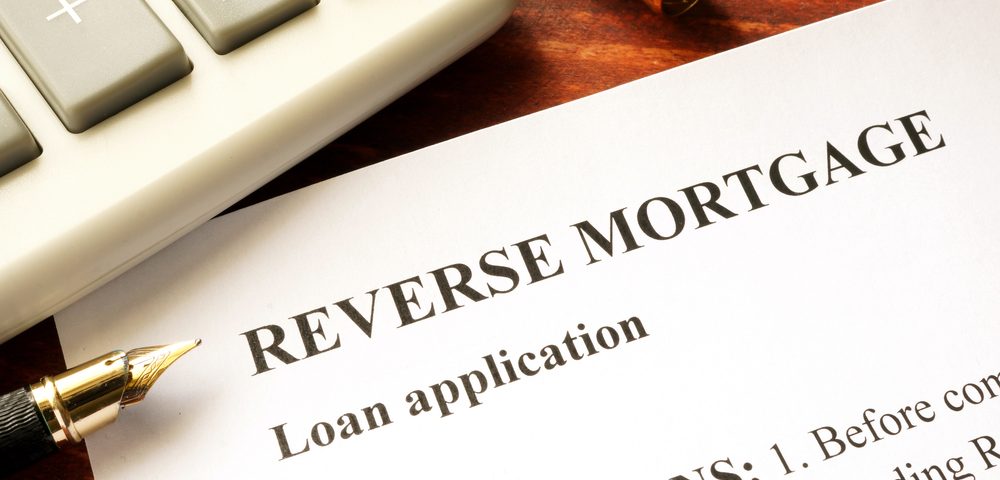A Guide to Help You Purchase Reverse Mortgage for Your Retirement Plan
A Guide to Help You Purchase Reverse Mortgage for Your Retirement Plan
Blog Article
Unlock Financial Liberty: Your Guide to Getting a Reverse Mortgage
Recognizing the complexities of reverse home mortgages is vital for homeowners aged 62 and older seeking economic flexibility. This unique monetary tool enables senior citizens to leverage their home equity, transforming it right into accessible cash for numerous needs, from health care to way of living enhancements. Navigating the eligibility benefits, standards, and prices can be complicated. As you consider this choice, it is critical to grasp not only how it works but also the ramifications it may have on your financial future. What are the essential elements you should evaluate before making such an impactful decision?
What Is a Reverse Mortgage?

The basic charm of a reverse home mortgage hinges on its prospective to boost monetary adaptability during retirement. Home owners can use the funds for numerous purposes, including clinical expenditures, home improvements, or daily living expenses, hence offering a safeguard during a critical point of life.
It is important to comprehend that while a reverse home mortgage permits boosted capital, it also reduces the equity in the home gradually. As passion builds up on the impressive loan balance, it is important for prospective debtors to meticulously consider their long-term financial plans. Consulting with a financial consultant or a reverse home mortgage specialist can provide important insights into whether this option aligns with an individual's financial goals and scenarios.
Qualification Demands
Comprehending the qualification demands for a reverse home loan is important for property owners considering this monetary option. To qualify, candidates have to go to the very least 62 years of ages, as this age requirement enables seniors to access home equity without month-to-month home mortgage repayments. Furthermore, the property owner should inhabit the house as their main home, which can include single-family homes, particular condos, and produced homes meeting specific standards.
Equity in the home is one more important requirement; property owners normally need to have a considerable amount of equity, which can be figured out through an appraisal. The quantity of equity offered will straight affect the reverse home mortgage quantity. Applicants must demonstrate the capacity to maintain the home, consisting of covering residential or commercial property tax obligations, homeowners insurance policy, and maintenance expenses, ensuring the residential property remains in great problem.
Furthermore, possible borrowers need to undertake a financial evaluation to review their income, credit rating history, and overall financial scenario. This evaluation helps lenders figure out the candidate's ability to satisfy recurring obligations related to the building. Meeting these demands is crucial for securing a reverse home mortgage and making certain a smooth monetary shift.
Advantages of Reverse Home Loans
Countless benefits make reverse home mortgages an enticing alternative for elders seeking to enhance their economic versatility. purchase reverse mortgage. Among the main advantages is the capability to convert home equity right into cash without the need for monthly home loan a fantastic read payments. This attribute permits seniors to access funds for numerous needs, such as clinical expenditures, home renovations, or daily living costs, therefore reducing economic anxiety
In addition, reverse home loans supply a security internet; elders can proceed to live in their homes for as long as they meet the loan needs, promoting security throughout retired life. The proceeds from a reverse mortgage can likewise be utilized to delay Social Safety advantages, possibly leading to higher payouts later on.
Additionally, reverse home mortgages are non-recourse finances, indicating that borrowers will certainly never owe greater than the home's worth at the time of sale, safeguarding them and their successors from monetary responsibility. Last but not least, the funds gotten from a reverse mortgage are generally tax-free, adding another layer of economic alleviation. Overall, these benefits position reverse home mortgages as a sensible option for seniors seeking to improve their financial scenario while preserving their valued home environment.

Costs and expenses Included
When thinking about a reverse home mortgage, it's important to be mindful of the various expenses and costs that can affect the overall economic picture. Recognizing these expenditures is vital for making a notified choice concerning whether this economic product is best for you.
One of the primary prices connected with a reverse home loan is the source fee, which can vary by lender yet usually varies from 0.5% to 2% of the home's evaluated worth. Additionally, house owners need to expect closing expenses, which might consist of title insurance coverage, assessment charges, and credit rating record fees, typically totaling up to several thousand dollars.
Another significant expenditure is mortgage insurance policy premiums (MIP), which secure the lending institution against losses. This fee is usually 2% of the home's value at closing, with an ongoing yearly costs of 0.5% of the remaining car loan balance.
Finally, it's vital to think about ongoing expenses, such as residential or commercial property tax obligations, homeowner's insurance policy, and maintenance, as the debtor stays liable for these expenditures. By carefully evaluating these prices and costs, home owners can better analyze the monetary implications of seeking a reverse mortgage.
Steps to Begin
Getting going with a reverse home mortgage includes several vital actions that can assist simplify the procedure and guarantee you make notified decisions. First, analyze your monetary scenario and figure out if a reverse check this site out home mortgage lines up with your long-term goals. This consists of reviewing your home equity, existing debts, and the need for added earnings.
Next, research various lenders and their offerings. Look for trusted institutions with positive evaluations, clear cost frameworks, and competitive rates of interest. It's necessary to contrast terms to locate the very best fit for your requirements.
After picking a sites lending institution, you'll need to finish a thorough application process, which normally requires paperwork of earnings, assets, and property details. Participate in a therapy session with a HUD-approved counselor, that will certainly provide understandings right into the implications and duties of a reverse mortgage.
Verdict
In verdict, reverse mortgages provide a sensible option for senior citizens seeking to enhance their monetary security throughout retirement. By transforming home equity into obtainable funds, property owners aged 62 and older can attend to various economic requirements without the stress of month-to-month settlements.
Recognizing the details of reverse home mortgages is crucial for homeowners aged 62 and older seeking economic liberty.A reverse home mortgage is a financial product made largely for house owners aged 62 and older, enabling them to transform a portion of their home equity into cash money - purchase reverse mortgage. Consulting with an economic consultant or a reverse mortgage professional can offer important understandings into whether this option straightens with an individual's economic goals and conditions
Moreover, reverse mortgages are non-recourse fundings, implying that customers will never ever owe more than the home's worth at the time of sale, protecting them and their heirs from monetary responsibility. Generally, these benefits setting reverse home loans as a sensible option for elders seeking to enhance their financial circumstance while preserving their treasured home setting.
Report this page